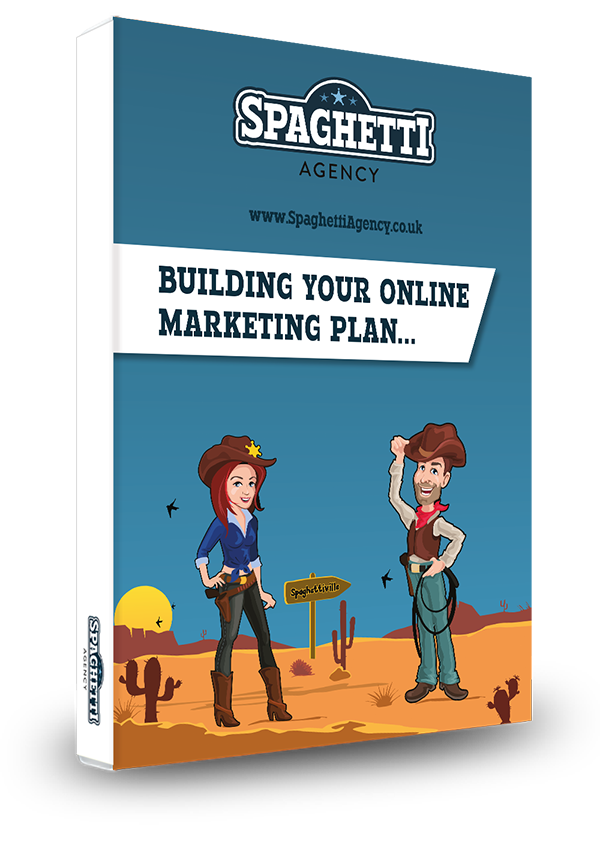Friday Digital Roundup
The Friday Digital Roundup is a witty take on the weird world of the internet. With fun stories from around the globe, it’s the only email newsletter you’ll actually read and enjoy!
We do love writing it, but clearly not as much as people like receiving it - just look at the response we got when a technical hitch meant it wasn’t sent out on time!
@Spaghetti_Jo
Coffee and the FDR is how I start my Friday.
Do not engage until I have devoured both
When it comes to the end of the week, there is no better way to start a Friday than with a run around the internet with Todd and Jo in the FDR. Just don't let them know I do it from the loo!
@Spaghetti_Jo
My inbox is full of rubbish newsletters that Im constantly deleting😬 My VIP inbox is for 1 thing only- THE DIGITAL ROUNDUP🤠I dont read a Newspaper or the news online, I just wait for Fridays, when this lands in my inbox- then I know ‘The weekend has landed’🤗
Get the Friday Digital Roundup and see what everyone’s talking about.
We may look like cowboys, but we’ll never abuse your data! Find out what we’ll do with it here, partner.
Spaghetti Blog
The Big Blog Insight – Lessons From 300 Blogs
“What you really need is a company blog. That’ll drive traffic to the website”.
That comment about blogging set me on a course for digital marketing that would eventually see me running a digital marketing agency with a team of content creators.
It was said by a web developer I was working with in a small business at the time and he was absolutely right… but he left so much out!
In this blog, I’m going to break down what blogging really means for your business and what we’ve got from it, learnt about it, and experienced thanks to blogging religiously for nearly 10 years.
Should you have a company blog? Yes – 100%. Here are the reasons why you should blog on your company website, based on our own data, our own experience, and feedback from visitors, clients and mentors.
The Big Blog Insight – Lessons From 300 Blogs
Blogging drives traffic (eventually)
The main reason for blogging in the first place was to drive traffic to a community project blogging site. Did it work? Well… yes and no. Yes, it got traction and yes, I drove traffic to a blog, but because I’d created a blog not hosted on the website it was kinda pointless (for SEO).
That said, the blog got traffic but not by simply uploading any old content to the blog. This is a big learning for me and one I’ll break down in the sections below. But in essence – you need a plan!
Just blogging alone won’t help. Just posting on social media is pointless. Just emailing any old thing is unlikely to drive sales. Right? Right. You need a plan, and that plan can be different depending on your company.
I did drive traffic to that first-ever blog – which was knocked up in an afternoon and hosted on Google’s own Blogger platform – but it was social media that drove the traffic to the blog. Blogging (the way I did it) didn’t bring in free search traffic. And of course, because the blog wasn’t on the actual website with all the products on, it didn’t achieve my goal!
Blogging tip: Put your blog on your darn website, not elsewhere!
Blogs do drive traffic and here’s how that works…
How do you drive traffic to a website with blogging?
There are several ways to do this, and we’ve seen the results of all of these with our websites and our clients’ sites.
Here are the main ones.
Blogging for SEO
With blogging alone (no other strategy) then you’ll need to go down the SEO (Search Engine Optimisation) route. SEO works using the words and phrases people are using on Google. By working these out and matching them in your blog content you’ll be able to pick up some free traffic from Google. You need to focus on the titles, the headings, and other areas like bullet points, image alt tags and more. You’ll find some blogging for SEO tips here, here and here.
This can drive traffic, but it needs to be part of a wider strategy.
Blogging with social media
If you couple blogging with your social media then you’ll be able to ‘push’ traffic to your blog from your social media posts. Simply putting a little text to ‘sell’ the blog to your Facebook fans or LinkedIn connections and adding a link will do this. But, algorithms dislike it and your content is likely to reach fewer people than a selfie or a pet photo (yes, even on LinkedIn!).
But you can – and should – drive traffic to your blog from social media. In my early days, this is how I got 1000s of hits on blogs. I posted them on Twitter (plenty of times) and followers clicked through and then retweeted the content to their audience.
Blogging with email
This has been by far the fastest and most successful way to drive blog traffic and thus increase website visitors. By using an existing email audience we’ve gained 100s of 1000s of people to our site’s blog by emailing a snippet of the content out with a ‘read more’ link in the email. It’s simple and effective.
Driving traffic to a website is great. It’s recommended. But it’s not the only benefit in town when it comes to owning and running a company blog…
Blogging for stalkers
The other interesting area is how effective a company blog can be for those who are already aware of you and are looking over your website.
If you meet someone online or in the real world you’ll likely connect on social, email each other, set up a Zoom meeting, or swap business cards (how quaint!).
This then leads to a bit of digital stalking…
The blog page can be a perfect place to get a sense of what the company is about and what they talk about.
- Looking to work with a company? Read their last few blog posts.
- Looking to sell to an SME? Do the same.
Digital stalking on a blog can benefit you in many ways, so really focusing on what you place on your blog can (and does) say a lot about you.
Think about what you want someone to think of your company and what you’re currently trying to achieve in the marketplace or even in your company itself and craft content to back this up.
We’ve moved from SEO-specific blogs (traffic building) to ones more about opinions (social clicks) and ethos (attracting clients) and also content from our team (recruitment supporting), to help our goals as we’ve focused and re-focused on different areas of the business and marketplace.
Your blog can and could be a perfect scrollable, scannable page about the topics you care about and you think your visitors will be interested in. From our current (Oct 2022) blog page (also known as the blog roll) you get a sense that we’re up on trending terms (UGC), interested in how companies dealt with the passing of the Queen on social (RIP your Maj), how to write a blog (a rubbish one!), and other areas like client management, content ideas, and new social platforms.
For us, it’s important that you see us as confident with our ideas, knowledgeable about the space we work in, and of course brave enough to wrestle some folk in the process. That’s our brand, those are our values, and we lay them bare on the blog.
Your blog represents you – even just the titles, images, and short synopsis on your blog roll.
People read blogs
“Well, no shit, Sheriff,” I hear you say. But they do. It’s nice and all but alongside the benefits laid out above – especially when folk are stalking your blog during their decision process to work with you or for you – there’s a longer game too.
Blogging benefits can take a long time to take hold, but much like social media content, your blog can chip away at someone or simply keep you front of mind. We’re often told that some content we’ve shared is the reason they’re talking to us. Our clients tell us the same. Something we said, in the way that we said it, resonated and stayed in their minds.
If you keep sharing your core messages, in a variety of different ways, all matched to industry topics, changes and events, then at some point you’ll land with someone. People read them. They read them on social, from email, from the blog roll, and they find them on Google.
“Do people really still read blogs?” is so often asked by someone who either doesn’t read blogs or who doesn’t realise they do. If you Google anything – and I mean anything – then I guarantee there’s a blog in the results. You’ll have solved problems with a blog in the past thanks to a quick Google, I just know it! Probably within the last 24 hours.
People do read them, and they do drive trust and authority to your business if you do it well (and often) enough.
Not everyone who reads your blog buys from you (and that’s ok!)
Plot twist: Blogging isn’t about sales, it’s about traffic, trust, and authority.
You will struggle to build a business case for a blog based purely on direct sales alone. The true value of a blog is the insights above and from gaining trust with Google.
Most of the traffic that comes to our blog doesn’t end up becoming our clients. The top blogs (in terms of traffic) on this site are nothing to do with our core services and they’re not even that well linked with things we want to offer.
But… we’ve built trust with Google.
We’ve gained links from other websites to our content about Facebook bugs and GDPR, and that in turn has shown Google we’re a good bunch. Google has then pushed us up the rankings; up the rankings for terms our future clients do search for.
Let me explain:
- We found a problem with adding an admin to Facebook
- We found a solution and blogged about it
- Over time, this has become very high up on Google for specific searches
- We’ve gained traffic (over 100K clicks) and more importantly lots of comments on the blog
- Our trust with Google on social media advice has grown
- Our overall trust has grown
- And then when someone types “Digital marketing agency, Warwick” into Google, we’re higher up.
Why wouldn’t we be? We’re getting 1000s of hits a week on a blog that’s constantly updated about a specific issue with adding someone to Facebook Admin; something we often need to do to start working with a client.
It makes sense that Google trusts us more, right?
So don’t just focus on the content that converts customers or clients, focus also on content that drives traffic for the related search terms in your industry.
Repurpose… everywhere!
Blogs don’t have to stay as blogs. Sure, you’ll share a link on social or email – there’s a system for that right here – but you can also take the content from your blogs and turn them into more content.
- Your blogs can be turned into social media posts. We’ll take each section of this blog and turn it into a mini graphic and share it on social media in a carousel.
- We could take each section of this blog and I’ll present a short 2-minute video on it.
- Each subsection of this blog could be a piece which in turn would create more emails and more socials.
- A blog could be condensed and added to your landing pages or sales copy.
You could even use your blogs as part of your sales funnel or client onboarding. Creating a series of emails with links to your blog or simply just shortened versions as full emails is a great way to use your blog more than once.
Repurposing is a quick way to create loads of content that’s all on message and theme, and it’s simple too.
If you want to go full-on with this repurposing idea then I fully recommend a quick flick through this awesome blog post from Gary Vaynerchuk on repurposing.
You don’t need a viral blog
Slowly slowly catchy (consistent) monkey is where it’s at for us. We’ve never really gone viral with a blog. Of all 300 blogs, the best ones have only reached 10’s of 1000s, not millions. Although gaining 101,177 views so far on our top blog is cool, that’s over the past 7 years, and it’s tiny in comparison to much of the content on the web.
But it doesn’t matter. It has worked and is working for us. The blog is driving traffic, getting people talking, driving our other marketing, and it’s giving the whole brand a consistent feel.
You don’t need to go viral – you just need to keep going.
Even the GDPR blog (which really took off at the time) didn’t go viral, it didn’t drive any direct sales, and wasn’t featured on any “Best blogs of XXX” blogs. But it has been a core part of the link-building and traffic referrals for the website, which has in turn helped us gain clients from Google.
Be consistent
Yes, consistency is my favourite word. This tip could be applied to so many areas of life, but it really does work so well in blogging. Blogging needs a consistent approach, and it needs a regular pattern too.
- If you’re emailing out or sharing it on your social media, then a blog needs to be consistent (to keep the content going)
- It needs to be regular (to ensure you’re emailing and social media-ing) in a way that builds repetition and a level of expectation.
Your audience is human, and the algorithms are AI. Both need regular signals and reminders that you exist. If you always email on a Monday at 3 pm like one of our clients does, then keep doing it!
Our Friday Digital Roundup email has been going out at 6 am Friday for years. People expect to see it at 6 am Friday in their inboxes. They tell us they enjoy it from bed or with a cuppa tea. When we once missed the 6 am time someone in the street asked us what had happened! Your blog and subsequent social media can be the same.
Being consistent also creates more content about the same areas more of the time. If you post about social media, blogging, content, email marketing, SEO and PPC every week for 7 years, what do you think that does to the keyword count on your website?
What does it do to the overall message on your website?
You’ll have loads of content, all around a few core topics, and Google and Google searchers will know exactly what you do.
Consistent content also means that you can have a bad blog, a bad week, or even a bad month and still be ok.
Creating content all the time simply builds up the concentration of topics on your website and tells Google, and those looking on Google, what you do.
It takes a team if you’re growing
Back in the day, I wrote nearly all the blogs on here but now I have a team and a rota. I nearly missed this slot. I nearly wasn’t allowed to write this. But I did, so there!
Anyway…
To have a consistent, up-to-date, relevant and well-written blog you need help or loads of time. As we’ve grown it’s become clear that my writing content isn’t as important as my running the business, so the team has jumped into the seat each week.
That’s the same for the companies that we now serve. They don’t make the time for content creation because they have more valuable things to do. But… they still want traffic to their website, and they still want to email and social media their audience. Consistent content does this… but they needed a team – our team!
There will come a time when you simply don’t make time for blogging and that will affect your traffic and that affects your leads which then affects your bottom line.
How do I know? It happened to us. At the beginning of 2022, the blog lay quiet for a few months because we had a lot of changes going on, and the results are brutally obvious to me. Our emails got fewer clicks, our social media lost some focus, and in some respects, our website traffic was affected.
It didn’t hurt our overall traffic that much as we have lots of evergreen content on the site, but the search console, it’s clear that overall (for our core search term) we were pushed down the results.
Google position for Digital Marketing Warwickshire
When you start – keep going.
You don’t need to blog weekly?
Well, no, but that doesn’t mean you can just get away with monthly or whenever you want. A good, well-planned and thought-out blog with a real SEO strategy and a good social sharing focus will drive more business.
The more you do, the more you’ll get. Kinda.
But you’re also better off creating two great blog pieces that drive loads of traffic and engage folk on social media over two good and two poor blogs that you created simply because you squeezed them out for the sake of it.
There’s plenty of content on the web from Google stating that it wants quality (longer form) content and there’s also the argument that your brand deserves better, too. So no, don’t create four posts with an average content level of 7/10, when you could simply create two 8 or 9s/10 instead.
That said, the highest-ranking sites in the world blog multiple times a day. So… make of that what you will. Plus, the more we blog, the more traffic (organically) we get.
What’s the best thing to blog about?
I always get asked this in workshops and seminars, and my answer will vary depending on the audience. What do you want to achieve with your marketing?
- SEO (more organic traffic)? Create content with your keywords, phrases and search terms in mind. Think how to blogs or industry guides.
- Social media support? Create conversation starters and share your views and opinions or double down on breaking news and progress in your marketplace.
- Sales? Yes, you can blog to help sales but consider how your sales funnel works and how your blog can support that.
- PPC? Using your blog, you can create long-form content or SEO-friendly posts to improve your Google or Facebook Ads.
“But Todd, what do we write about?”
Oh, sorry. That.
Here are some ideas for you that have served us very well over the past 10 years:
- Opinions – These posts have helped us to grow our authority and get us invited to speak and be interviewed more.
- Tips – Simply to create, ideal for sharing, and brilliant for SEO. Tips and how-tos are the top posts on our blog for overall traffic.
- Stupid questions – I love a stupid question. Not actual stupid ones (there’s no such thing), but a question that’s pre-framed with “This might be a stupid question, but…” because these are GOLD for content on your blog. The answers to them are, anyway.
- Transactional – Create content that helps you do all the things you do in your business. Sales and email funnels, onboarding content, thank you pages, social media content, email marketing and client and prospect calls. We’re constantly sending out blogs about local networking, networking for newbies, and co-working which helps us engage with new and known people and send traffic to our site in the process.
If you’re always sharing the same answers and ideas with people, then create some transactional blogs. You’ll be able to save time in future. Once you have the content, just email it over. It’s a nice helpful thing to do, and you’ll likely find more people like them searching on Google, too.
I love transactional content. It’s perfect for adding to your CRM email processes like Hubspot, Zoho, and Keap. That’s right; you don’t have to create content for your CRM and leave it hidden in there – publish it and then add a snippet into your CRM and link back to the website to read more.
More visitors come to our blog than our home page, about us page, or contact form
Sadly, people care more about themselves than us. We’re devastated!
But seriously, that’s cool.
Our home page came in at number six on the all-time views since 2015 (when Spaghetti Agency was created), and that makes total sense.
In fact, in order of overall page views this year (2022), here’s what it looks like:
- Why Can’t I Share My Business Page On Facebook (Solved)
- How to Access Your Facebook Pages News Feed – 2021 Update
- Add an Admin to Facebook… When Facebook’s Way Doesn’t Work!
- How to Post a Link on Facebook Without the URL 2020
- How to Share a Facebook Post in an Email – Solved
- The home page
- Why Can’t I Tag Someone on Facebook?
- About
- Contact
- “Successful People Don’t Drink” – Why I Quit the Booze and What Happened Next
And the top three blog posts overall since May 2015:
- Why Can’t I Share My Business Page On Facebook (Solved) 101K
- How to Share a Facebook Post in an Email – Solved 60K
- How to Post a Link on Facebook Without the URL 2020 55K
For us, it’s been the tips, hacks, and workarounds that have driven the blog. Of course, we could have written all opinion pieces that would simply have given us those as the top posts (if we’d written nothing else), but we’ve created content like this because we know it drives organic traffic and thus supports our SEO.
The Facebook News Feed for Business Pages blog we wrote last year is still performing very well with over 25K views so far.
Again, what’s your strategy? Ours has nearly always been:
- SEO -> linked to transactional content -> that’s good for social media -> and easy to email out to our list.
One blog, four outcomes. (Plus some re-purposing for other channels as mentioned at the beginning of this blog).
Need help writing that blog? Drop us a line, partner
There are honestly so many more insights we could share but the above are the big ones. Get good content going out more often and to more places and you’ll be “everywhere!”. That’s what people say to us, and for good reason. Yeehaa!
Tags associated with this article
Blogging BlogsPost a comment
We'd love to know what you think - please leave a comment!








0 comments on this article